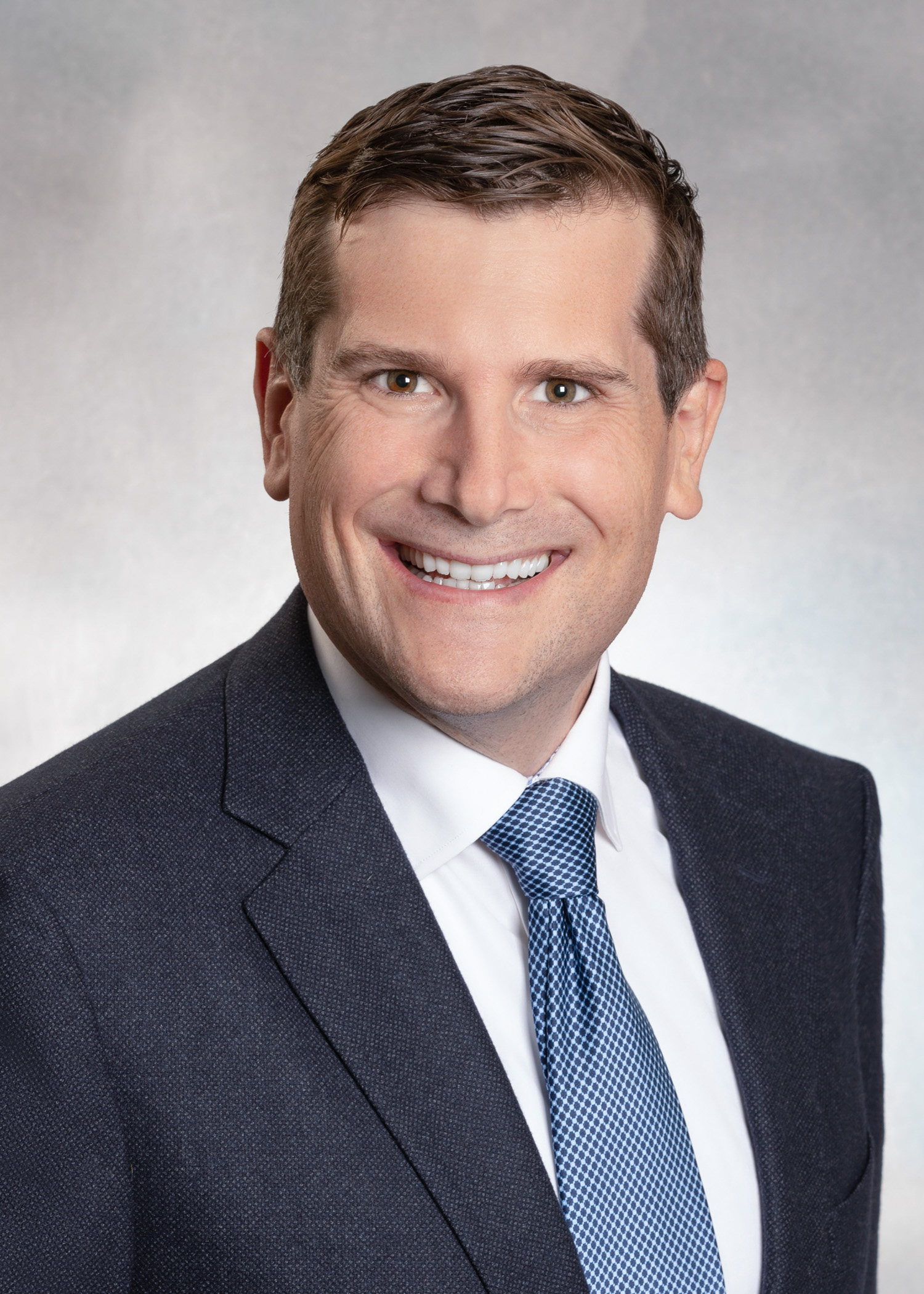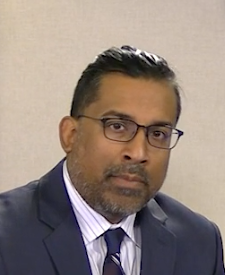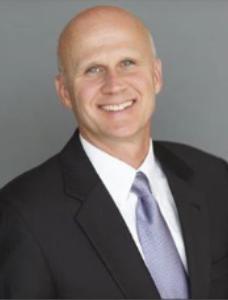Accreditation
Program Faculty
-
Alan H.B. Wu, PhD
Alan H.B. Wu, Ph.D., is Chief of Clinical Chemistry and Toxicology at San Francisco General Hospital Professor of Lab Medicine, University of California, San Francisco. He received B.S. degrees in chemistry and biology at Purdue University and a Ph.D. degree in analytical chemistry at the University of Illinois. He completed a postdoctoral fellowship in clinical chemistry at Hartford Hospital. He is certified by the American Board of Clinical Chemistry in Clinical Chemistry and Toxicological Chemistry. His research interests include clinical toxicology, cardiac biomarkers, and point-of-care testing. Dr. Wu has over 500 publications in peer-reviewed journals. He has also written eight paperback books consisting of short stories designed to promote the value of the clinical laboratory to the general public.
-
Allan S. Jaffe, MD
Dr. Allan Jaffe is a graduate of the University of Maryland School of Medicine. He received his house staff and Cardiology training at Washington University and continued there for 24 years rising to the rank of Professor of Medicine and Director of the Coronary Care Unit. He then moved to the State University of New York where he was Chair of the Cardiovascular Division, Associate Chair of Medicine for Academic Affairs, and Professor of Medicine. After four years he moved to Mayo Clinic where he is presently Professor of Medicine in the Department of Cardiovascular Medicine and Professor of Laboratory Medicine and Pathology, and the Wayne and Kathryn Preisel Professors for Cardiovascular Disease Research. He is a noted authority on biomarkers of cardiac injury, inflammation, hemodynamic disturbance, and coagulation and particularly their clinical utility. He has published a large number of original manuscripts, book chapters, reviews, and sits on most of the prestigious editorial boards and guideline committees in the Cardiology and Clinical Chemistry communities. He has been a principal for the Universal Definition of MI group.
-

Brian B. Patel, MD
Dr. Patel is currently the Senior Vice President of Medical Affairs, Chief Medical Officer and Chief Quality Officer at Sturdy Memorial Hospital in Attleboro, MA where he also has practiced as an Emergency Medicine physician since 2005. Previous to his current role, Dr. Patel has held leadership positions at Sturdy Memorial Hospital including Associate Chief Quality Officer, Chief of Emergency Medicine and Occupational Health Services, Utilization Management Physician Advisor, and Regional EMS Medical Director. He also serves as a clinical physician advisor for Point Click Care, a digital care coordination and health information exchange platform, and Agilix, a remote care platform to optimize management of nutrition in oncology patients. He obtained his medical degree from the University of Massachusetts Medical School in 2001 and completed his Emergency Medicine training at Brown University/Rhode Island Hospital in 2005. His interests include optimizing pre-hospital and hospital quality and safety through digital technology, advancing initiatives to improve provider wellness, and improving geriatric, stroke, substance use disorder and mental health care.
-

Christopher W. Baugh, MD
Dr. Baugh is the Vice Chair of Clinical Affairs of the Department of Emergency Medicine at Brigham & Women’s Hospital and Associate Professor of Emergency Medicine at Harvard Medical School. Dr. Baugh trained in Emergency Medicine at Brigham and Women’s & Massachusetts General Hospitals’ combined residency program, focusing his career in Observation Medicine and accelerated diagnostic pathways during this time. He became medical director of the ED observation unit in 2009, launched a second one in 2014, and opened and directed the Brigham’s urgent care center in Foxborough, MA between 2011 and 2015. From 2015 through 2018 he served as the Medical Director of the Department of Emergency Medicine. He has published on the clinical and administrative aspects of observation care in the New England Journal of Medicine, Health Affairs, Annals of Emergency Medicine and Academic Emergency Medicine. He recently served as Chair of the Observation Medicine Section of the American College of Emergency Physicians.
-

W. Frank Peacock, MD
W. Frank Peacock IV, MD, FACEP, FACC, FESC, is an Emergency Medicine Professor and Vice Chair of Emergency Medicine Research at Baylor College of Medicine, in Houston, Texas. With >700 publications, predominantly in clinical emergency medicine, he’s published multiple Emergency Cardiology textbooks, and the first on Biomarkers of Traumatic Brain Injury. He is a 3-time winner of the American College of Emergency Physician’s Best Research Award, and the American College of Cardiology’s Ray Bahr Award for cardiovascular excellence. He is the founder of Comprehensive Research Associates (contract research organization), Emergencies in Medicine (medical education company), and AseptiScope (stethoscope hygiene company).
-

Sayon Dutta, MD
Dr. Sayon Dutta is an Emergency Physician in the MGH Emergency Department (ED) and serves as the Physician Lead for Emergency Medicine and Clinical Decision Support at Partners eCare, which builds and maintains the Epic Electronic Health Record (EHR) for the enterprise. He completed his training in Emergency Medicine at the Harvard Affiliated Emergency Medicine Residency and then joined as a research fellow at MGH during which time he earned a MPH in Quantitative Methods at the Harvard School of Public Health. As a fellow, he focused primarily on the role of information technology in humanitarian response. He subsequently joined the faculty at MGH and HMS, and in that role, he provides clinical care and performs research on the impact of clinical decision support within the EHR. In his role as a Physician Lead at Partners eCare he works with software developers to build and optimize the Epic EHR for clinical users.
-

James F. Neuenschwander II, MD
Attending Emergency Physician, Genesis Healthcare System, Zanesville, OH
Dr. Neuenschwander is the Research Director and Attending Physician at the Genesis Healthcare System Emergency Department in Zanesville, Ohio.
Dr. Neuenschwander is active with research and is the primary investigator on a number of studies. He also sees patients full time in the ED, Observation Unit, Woundcare Clinic, and HBO.
He is active at the Ohio State University as an Adjunct Associate Professor with resident teaching and research collaboration.
Dr. Neuenschwander serves on the Peer Review and Antibiotic Stewardship Committees and has helped launch the Observation Unit at Genesis. He has his Medication Assisted Treatment waiver and is part of an ongoing research project determining the effectiveness of starting medications to stop opioid withdrawal with a rapid follow up to treatment.
Dr. Neuenschwander is a graduate of Case Western Reserve School of Medicine and is currently an Alumni Board member.
He completed his residency program at the Johns Hopkins Hospital in 1998. He loves to teach and participates in multiple CME programs throughout the country while still finding time to play soccer, exercise and spend time with his beautiful wife and wonderful children.
-

Michael R. Broyles, PharmD
Director of Pharamacy and Lab Services, Five Rivers Medical Center, Pocahontas, AR
Dr. Michael Broyles is the lab director and director of pharmacy at Five Rivers Hospital.
As a hospital pharmacy and laboratory director focusing on antimicrobial stewardship and consultant for a large IDN as pharmacy advisory chairman for more than 25 years, he is one of the pioneers in Procalcitonin utilization and brings over a decade of experience with a multitude of publications and research findings.
Mike has worked diligently for the past several years, crossing the country, educating Healthcare Representatives about Antibiotic Usage and improving patient outcomes.
He recently completed a study in which he included data from over 2100 patients that had been treated at Five Rivers Medical Center. The study consisted of comparing data that was found with the patients who were treated with antibiotics prior to the use of a laboratory test called Procalcitonin (PCT) and those that were treated after the test was available. Procalcitonin (PCT) is a Peptide Precursor of the hormone Calcitonin. The level of Procalcitonin will rise in the presence of a bacterial infection. During the course of antibiotic treatment for these bacterial infections, PCT is measured to verify that the antibiotic administered is decreasing the level of PCT found circulating in the patient’s bloodstream. If not, Antibiotics might need to be adjusted or changed. As PCT decreases, the Antibiotics are able to be discontinued earlier than if other laboratory tests are used without PCT as the Physician’s guide.
What Mike found during his study, was astounding and definitely proved that antibiotic usage has decreased due to PCT availability and use.
With decreased antibiotic use, the patient’s susceptibility to the side effects as well as other Antibiotic related sequela is vastly diminished.
Please see the resources section of this website to view links to some of the academic articles published by Dr. Broyles.
-

Eric H. Gluck, MD
Director of Critical Care Services, Swedish Covenant Hospital, Chicago, Illinois
Dr. Gluck received his doctoral degree in medicine from New York Medical College in Valhalla, New York.
He completed his residency at Beth Israel Medical Center in New York City and a pulmonary fellowship at the University of Utah School of Medicine in Salt Lake City, Utah. Dr. Gluck currently serves as the director of Critical Care Services at Swedish Covenant Hospital in Chicago, Illinois, and as a professor of medicine at Finch University of Health Sciences at the Chicago Medical School. He is also a fellow of the Society of Critical Care Medicine, the American College of Chest Physicians, and the Chicago Institute of Medicine and a member of the American Thoracic Society, the Society of Sigma Xi, Alpha Omega Alpha, and the American Society of Law, Medicine, and Ethics. He has delivered numerous lectures and co-authored many articles in the field of pulmonary critical care.
Dr. Gluck is renown pulmonologist that provides a snappy and straightforward approach to critically ill patients and how to manage them utilizing Procalcitonin.
His experience is vast and his contributions to understanding Procalcitonin are noteworthy, including serving as an author of the foundation for the MOSES trial, which expanded the procalcitonin FDA claim, and a member on PCT-Guided Antibiotic Therapy in Hospitals.